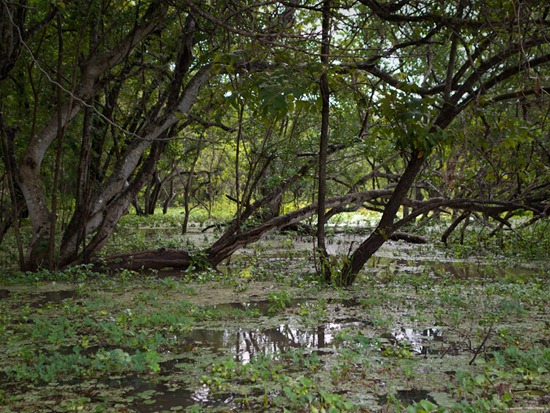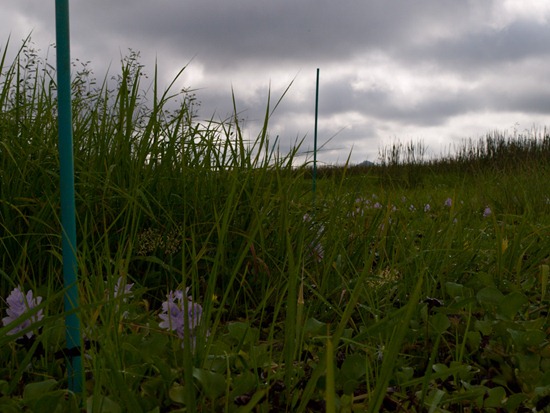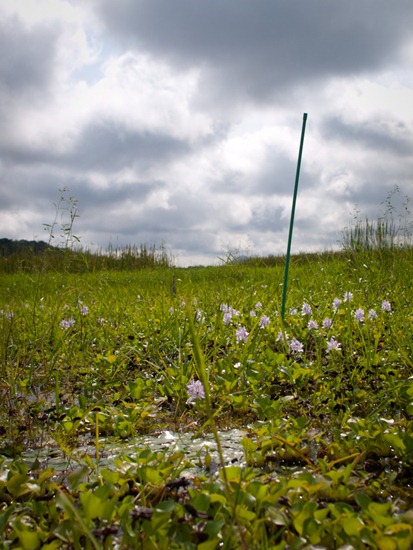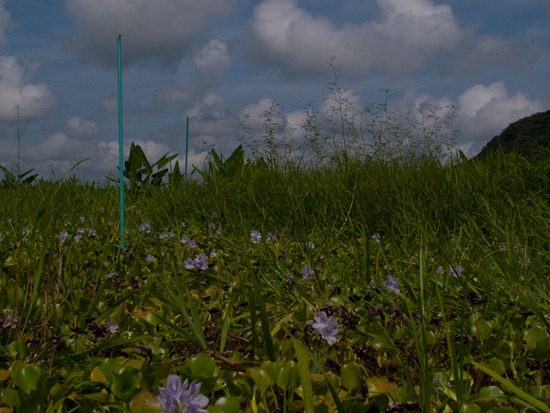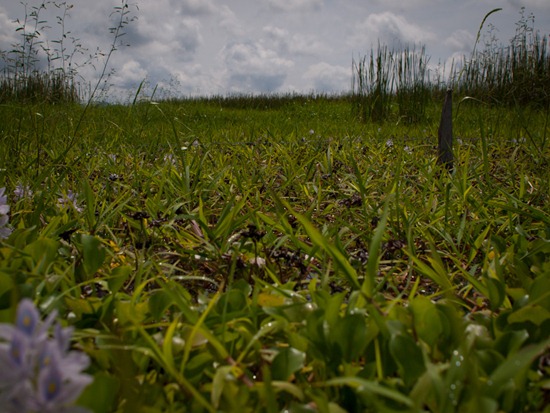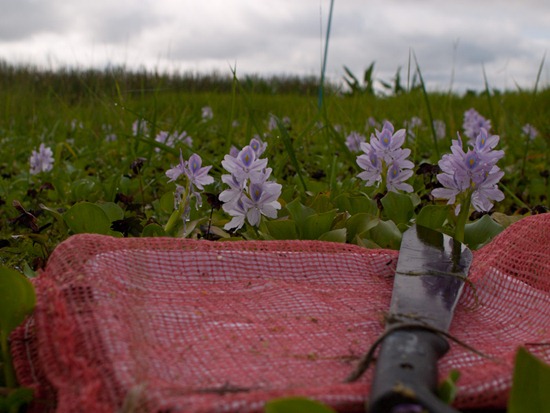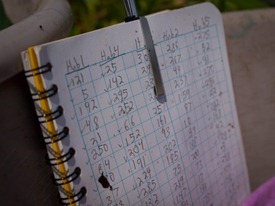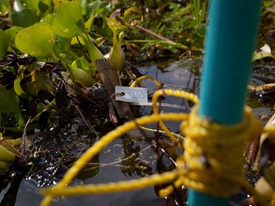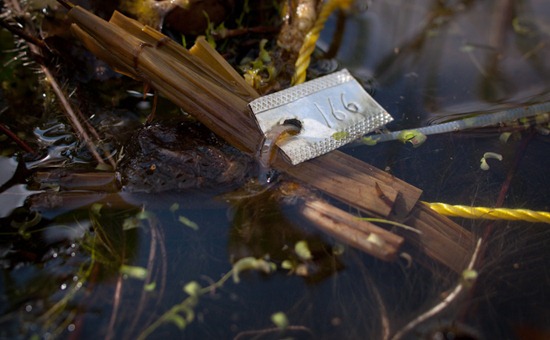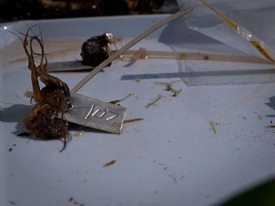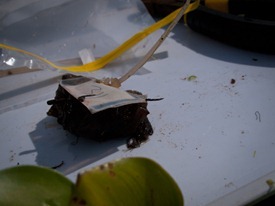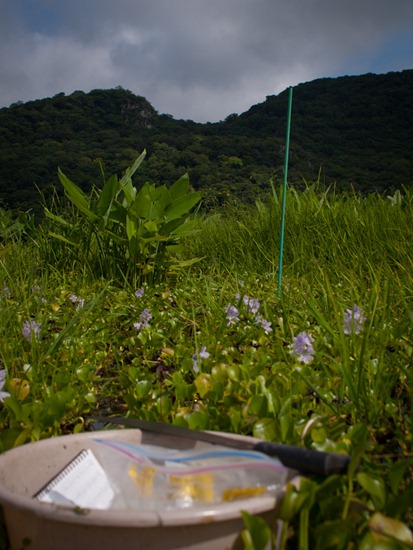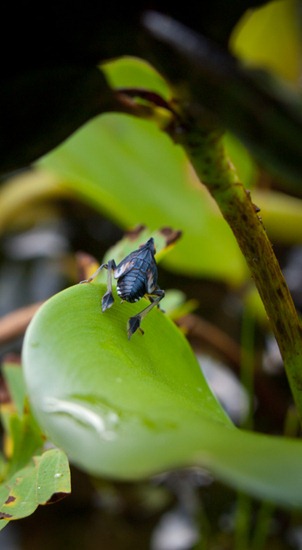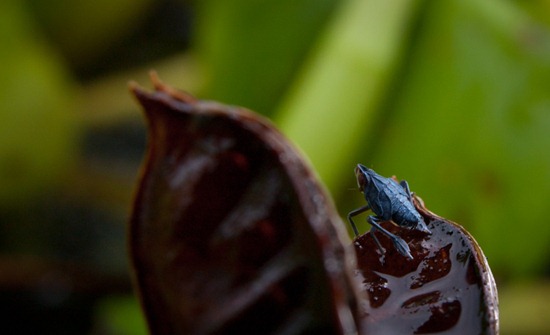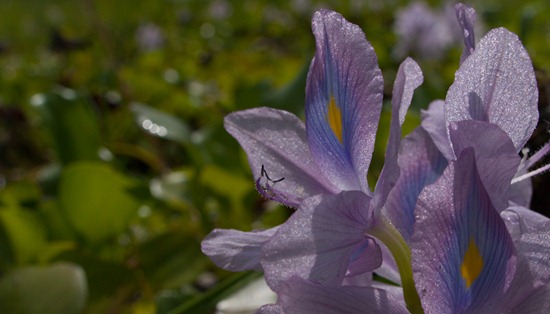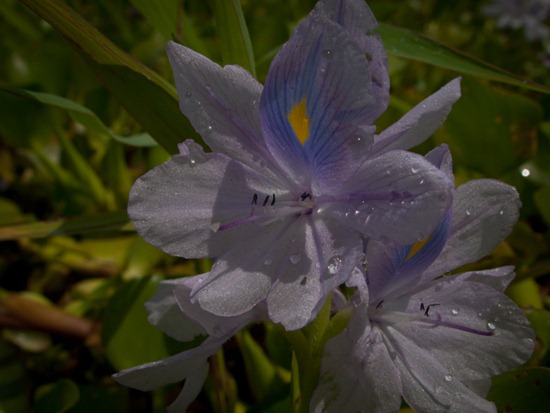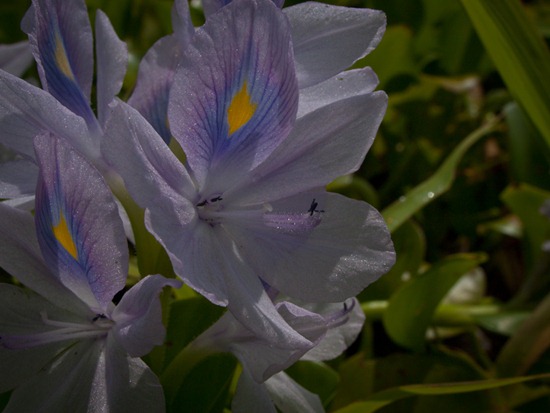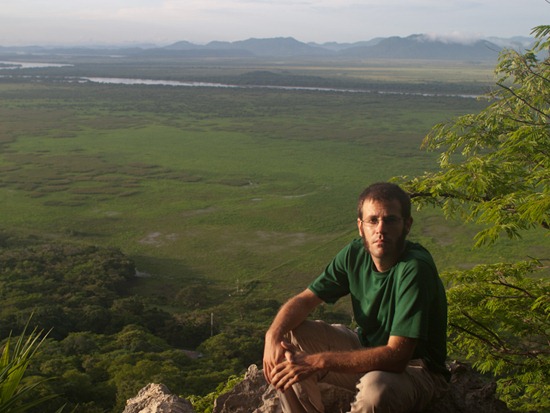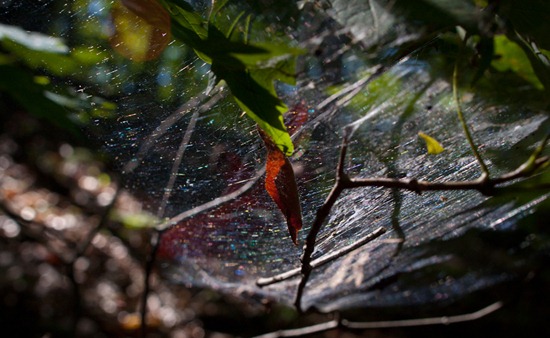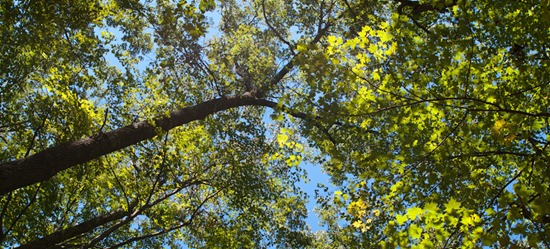The wetland has expanded into much of the low-land forest. It’s fascinating that these trees can survive completely saturated soils for half a year, and extreme dryness for the other half.
Monthly Archives: September 2010
Wetland entrance
Some pictures of poles
Within my fence at PV, I have several poles designating sites where my decomposition bundles were attached. Here’s a last set of photos before I took the poles out (with the help of another IRES student, Michelle).
Notice the depth in the last photo – the wooden fence post stands about 6’ 5’’ from the wetland bottom. I’m not exactly bending down to take a photograph with the vegetation in the foreground….
Last bundle collection
Feather feet
These tiny hempiterans are common in the wetland at Palo Verde. There hind tarsi have expanded, feather-life, paddles that they use to provide enough surface area to jump from predators, such as myself, while on the water’s surface. I don’t know what family they are, but I’ll collect some and see if I can force the Entomology class to key them… adults are hard to find though.
In other hemipteran news, after returning from about five hours in the wetland, I wiped away something on the back of my neck, and it was a kissing bug! It was filled with blood and unable to fly – it attempted to spread it’s wings and flutter away from the ground, but the thick, blood-filled abdomen appeared to be too heavy for lift off. I squashed it angrily; I hope there was no chagas.
Eichhornia heterostyly
Some more photographs of Eichhornia crassipes flowers demonstrating heterostyly.

